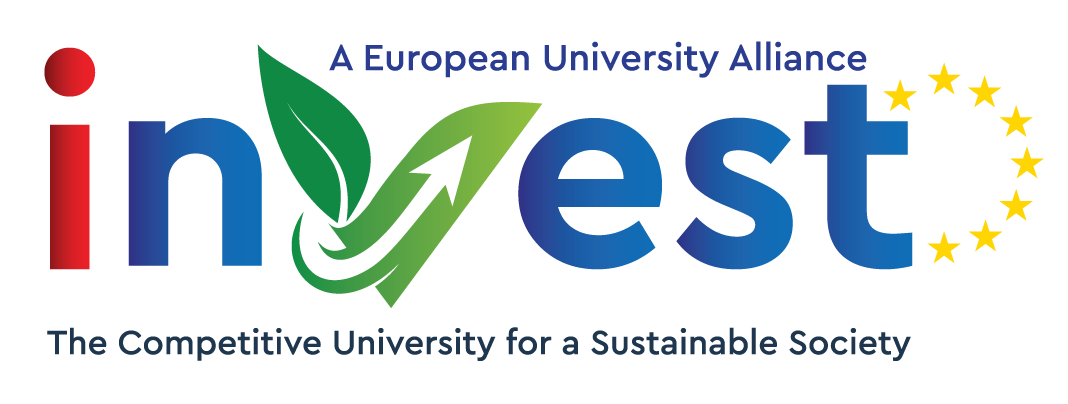INVEST WINTER SCHOOL 2023: AN INTRODUCTION TO NATURE-INCLUSIVE AGRICULTURE
INVEST students advise on a bigger and better approach for nature inclusive agriculture
Last week 22 INVEST students and 12 faculty members from the European partners came together to explore what is happening in nature inclusive agriculture across Europe. Hosted by Van Hall Larenstein University of Applied Sciences, this joint collaborative Winter School contributed to a broader European understanding of the challenges and opportunities on how to adapt to and mitigate the effects of climate change through good practices in agriculture.
Hands and feet in the dirt
Starting with a national perspective from the countries Bulgaria, Finland, Greece, Slovakia and The Netherlands, policy views, current developments and challenges as well as unique opportunities for the agricultural sector were shared. More specialized lectures were given on what constitutes nature inclusive farming: soil, bio-diversity in plant- as well as animal life. There were excursions to farms in Friesland and Groningen who specialize in dairy, horticulture, and bio-farming. A research farm was visited where different techniques are explored to learn which farming changes can lead to positive change. One take-away from these visits: the extreme importance of healthy soil and how much life there is under our feet in the form of micro-organisms. It should be no surprise that many got their hands and feet dirty by getting a good feel of the soil.
International collaboration is key in solving societal issues
Several participants voiced the importance of wanting to do something positive now in order to mitigate the effects of climate change. Having impact on climate change demands collaboration at a national and the international level. One of the goals of this Winter School was to let students experience what it takes to work productively together in an intercultural setting. The groups were split into different nationalities and they had to work together to work on their final assignment. To give the students additional tools, a workshop was held on cultural differences, students shared traditions and food from their home countries, they received peer advisement from Dutch students, and guidance was given during the group work.
Final Assignment
And all the hard work paid off. On Monday 16 October the students held their final presentations with recommendations for improving Nature Inclusive Farming. Upon completion of their last written assignment, the students will receive 5 ECTS and a Certificate of Attendance for their participation.
